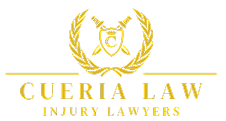In a personal injury case, a settlement refers to an agreement reached between the parties involved to resolve the claim without going to trial. It typically involves the injured party receiving compensation for their damages from the at-fault party or their insurance company. Maximizing your settlement is crucial to ensure you receive fair compensation for your injuries, losses, and damages.
Hiring a personal injury attorney can greatly increase your chances of maximizing your settlement. A skilled attorney will negotiate on your behalf with the at-fault party or their insurance company to secure the best possible outcome for your case. When looking for a personal injury attorney, it is important to consider their experience, reputation, and track record of success in settlement negotiations.

Gathering evidence and documentation is essential in building a strong case for settlement. This includes obtaining medical records and bills related to your injuries, police reports and witness statements from the accident, as well as photos and videos of the accident scene. Additionally, documenting lost wages and other financial losses can help demonstrate the extent of your damages and strengthen your case.
Negotiating with insurance companies can be a complex process, as they often try to minimize payouts to maximize their profits. It is important to understand the claims process, be aware of common tactics used by insurance companies, and negotiate for a fair settlement offer that adequately compensates you for your losses. Seeking legal representation can help level the playing field and ensure you are not taken advantage of during negotiations.

Presenting a strong case to the at-fault party or their insurance company is key to maximizing your settlement. This involves organizing and presenting evidence effectively, demonstrating the extent of your injuries and damages, and utilizing expert witnesses when necessary to support your claim. By presenting a compelling case, you are more likely to receive a fair settlement offer that reflects the true value of your claim.
When considering the full scope of damages in your personal injury case, it is important to account for both economic and non-economic losses. Economic damages include medical expenses, lost wages, and other financial losses, while non-economic damages may cover pain and suffering, emotional distress, and loss of enjoyment of life. In extreme cases, punitive damages may also be awarded to punish the at-fault party for their reckless actions.
Knowing when to settle and when to go to trial is a critical decision in maximizing your settlement. Factors to consider include the strength of your case, the likelihood of success at trial, and the risks and benefits of each option. By weighing these factors carefully and seeking guidance from a personal injury attorney, you can make an informed decision that is in your best interests.
In conclusion, maximizing your settlement in a personal injury case requires careful preparation, strong negotiation skills, and strategic decision-making. By following these key tips and seeking legal guidance, you can increase your chances of securing a fair settlement offer that adequately compensates you for your injuries and damages. Remember, it is important to prioritize your well-being and seek justice for the harm you have suffered.



